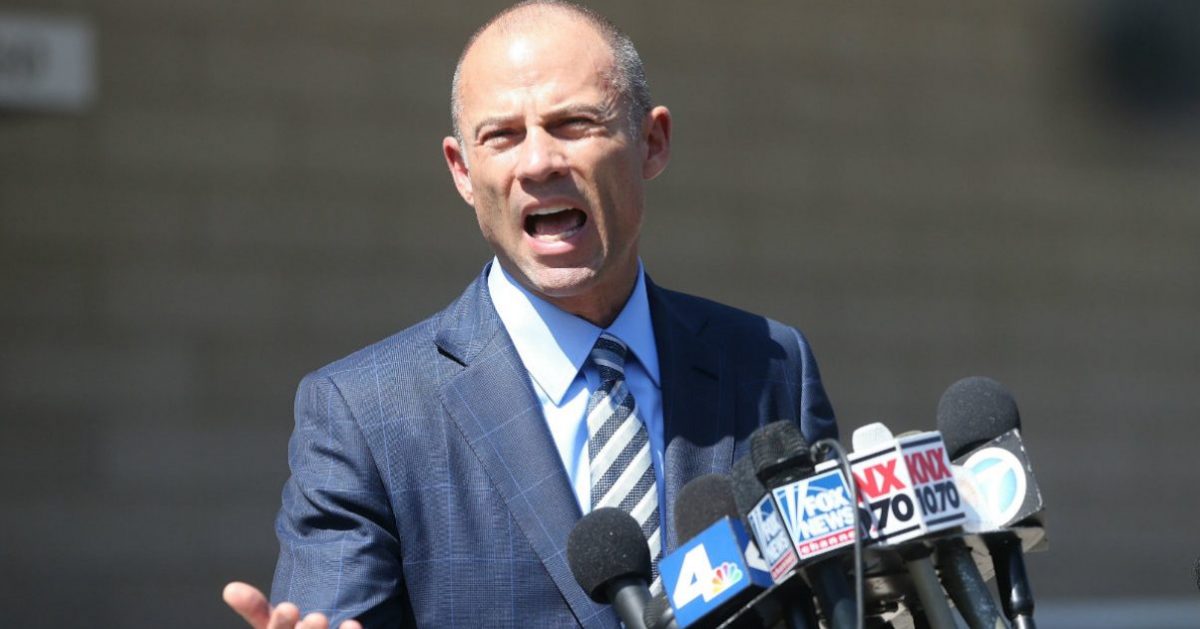
It’s not hard to imagine why Michael Cohen and his legal team would be upset by Michael Avenatti‘s many public appearances discussing the lawsuit his client Stormy Daniels has brought against Cohen and President Donald Trump. Avenatti has made the case a non-stop part of cable news coverage, and as a result, lawyers for Cohen and Trump have scrambled to respond to issues that have come up in relation to the case. It’s also likely no surprise that Cohen and his lawyer are now asking the court to force Avenatti to stop, with an application for a restraining order meant to keep Avenatti from speaking to the press or public about the case.
Avenatti, meanwhile, has taken Cohen’s latest move not just as a threat to him personally, but to the Constitution. In a tweet Friday morning, Avenatti called the court filing an “assault on the 1st Amendment,” and said it was typical of Cohen, who has a history of trying to intimidate and “shut people up.”
For over 12 yrs, Mr. Cohen and his boss Mr. Trump have routinely tried to “shut people up” and hide the truth through intimidation & threats. Reporters, judges, adversaries, attys. The motion is right out of their playbook. And their assault on the 1st Amendment continues. #Basta
— Michael Avenatti (@MichaelAvenatti) June 15, 2018
This statement comes after Avenatti blasted the application for a restraining order Thursday night, calling it “a complete joke and baseless.”
The motion for a gag order is a complete joke and baseless. Mr. Cohen and Brent Blakely can’t deal with the truth, the facts, and the law, so they have to resort to unethical, meritless motions. This must be their birthday present to Mr. Trump. #Basta
— Michael Avenatti (@MichaelAvenatti) June 15, 2018
The motion, which slams Avenatti for having a “seemingly unquenchable thirst for publicity,” cites California legal ethics rules that restrict what an attorney may or may not say to the public regarding an ongoing case. Rule 5-120 states:
A member who is participating or has participated in the investigation or litigation of a matter shall not make an extrajudicial statement that a reasonable person would expect to be disseminated by means of public communication if the member knows or reasonably should know that it will have a substantial likelihood of materially prejudicing an adjudicative proceeding in the matter.
The rule has several exceptions, such as statements regarding, “the claim, offense or defense involved and, except when prohibited by law, the identity of the persons involved … the information contained in a public record … a request for assistance in obtaining evidence and information necessary thereto[.]”
Avenatti has made personal attacks against Cohen’s character, which Judge S. James Otero could potentially find to be outside the bounds of what is permitted, since it could be prejudicial. Most of his public statements, however, have either either dealt with his client’s claims against Cohen and Trump, or separate legal matters regarding Cohen’s criminal investigation. While the investigation is connected to Daniels’ case, the issues involved are separate from those at play in Daniels’ civil suit.
Even if Avenatti’s statements about Cohen’s criminal concerns are found to be in violation of the rules, however, Cohen’s application for a restraining order does not limit itself to certain types of statements. Rather, it seeks to bar Avenatti from saying anything publicly about the merits of the case, even statements that would appear to be permitted by legal ethics rules.
Avenatti’s public tweets regarding his thoughts on the the motion, and Cohen in general, seem to fly in the face of the motion itself. Ultimately, it will be up to the judge to decide if such tweets can continue.
[Image via Mario Tama/Getty Images]